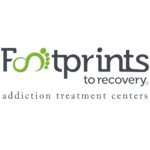The ICD-10 stands for the International Classification of Diseases, 10th Revision. It is a medical classification system published by the World Health Organization (WHO) that assigns codes to diseases, conditions, symptoms, and external causes of injury.
According to the ICD-10, alcoholism falls under the category of “Mental and behavioral disorders due to psychoactive substance use”, specifically alcohol use disorders. The ICD-10 does not use the term “alcoholism” directly but classifies it under F10, which includes disorders related to the use of alcohol.
Understanding Alcoholism: ICD-10 Codes
The ICD-10 codes combine letters and numbers to classify different diseases and disorders. Although complex, the system provides accuracy and clarity on specific health concerns. The state of the disorder separates the codes for alcoholism. Let’s go into further detail by looking at particular codes.
F10.1 – Harmful Use of Alcohol
The code F10.1 is categorized as Alcohol Abuse. It has sub-sections of continuing codes starting with the number 1. These align with specific situations. For instance, F10.11 is alcohol abuse in remission, while F10.14 is alcohol abuse with alcohol-induced mood disorders.
F10.2 – Alcohol Dependence Syndrome
The broad section of F10.2 refers to Alcohol Dependence. This is a more severe stage of addiction than alcohol abuse on the alcohol use spectrum. It follows F10.1 because alcohol abuse is the first step towards addiction, while alcohol dependence is an early outcome. Once you become dependent, it is harder to deny cravings, so you continue the cycle.
F10.3 – Alcohol Withdrawal
F10.3 is classified as Mental and Behavioral Disorders Due to Alcohol, in Withdrawal State. Everyone dependent on alcohol will experience withdrawal symptoms when they try to quit. To be in this state of withdrawal means you are experiencing mental health symptoms from withdrawal, a potential result. The safest way to go through withdrawal is in a medical detox facility, so you don’t have to handle symptoms on your own.
F10.5 – Alcohol-Induced Psychotic Disorder
The code F10.5 is Mental and Behavioral Disorders Due to Use of Alcohol, Psychotic Disorder. It refers to having psychotic symptoms as a result of alcohol abuse. These may include hallucinations, delusions, and brain fog. Unfortunately, since alcohol impacts your brain, developing frightening symptoms like psychosis is possible.
F10.6 – Alcohol-Induced Amnesic Syndrome
F10.6 points out another potential side effect of alcohol abuse, amnesic syndrome. This is when a person struggles with memory impairment due to chronic alcohol abuse. This is another dangerous way alcoholism can damage your mind.
"*" indicates required fields
Fill out the form below and one of our admissions team members will reach out to you:
"*" indicates required fields
What Is the International Classification of Diseases?
The International Classification of Diseases, or ICD, is considered to be the worldwide standard for discussing and diagnosing health issues. Developed by the World Health Organization, the book gathers all relevant information in one place. It is used to accurately track numbers and provide resources on a wide variety of health concerns.
Why Is the ICD-10 Important for Alcohol Use Disorders?
The ICD is important for any substance use disorder, including AUD, because it helps to define the condition. We know all disorders present differently depending on the person, which can make diagnosing them challenging. However, the ICD provides the most up-to-date criteria to best provide a person with a diagnosis, as well as proper education and support. The ICD can inform medical professionals about the severity scale of AUD so high-risk cases receive help on time.
The Value of Alcohol Use Disorder Treatment
If you have alcohol use disorder (AUD), you have developed a severe and challenging form of alcohol addiction. Having a substance disorder means it will be more difficult for you to quit because your brain has developed a dependency on alcohol. As such, you’ll experience cravings and other strong withdrawal symptoms whenever you go too long without drinking. The best and most promising way to achieve sobriety is with professional addiction treatment. It is a valuable approach to recovery because it’s evidence-based and personalized to each individual.
What Are the Long-Term Risks of Alcohol Abuse?
Alcohol addiction has many dangerous long-term symptoms from chronic alcohol abuse. These may include any of the following risks:
- High blood pressure
- Weakened immune system
- Cancer
- Heart disease
- Liver disease
- Mental health disorders
- Psychological dependency
- Physical dependency
- Alcohol poisoning
- Overdose
- Death
If you want to begin to heal from and even reverse the damage of alcohol abuse, please reach out to our professional drug rehab center!



